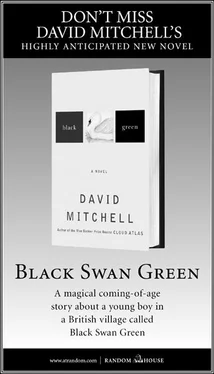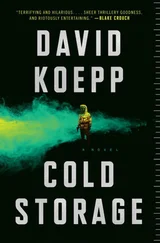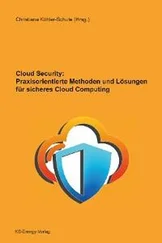David Mitchell - Cloud Atlas
Здесь есть возможность читать онлайн «David Mitchell - Cloud Atlas» весь текст электронной книги совершенно бесплатно (целиком полную версию без сокращений). В некоторых случаях можно слушать аудио, скачать через торрент в формате fb2 и присутствует краткое содержание. Жанр: Старинная литература, на английском языке. Описание произведения, (предисловие) а так же отзывы посетителей доступны на портале библиотеки ЛибКат.
- Название:Cloud Atlas
- Автор:
- Жанр:
- Год:неизвестен
- ISBN:нет данных
- Рейтинг книги:5 / 5. Голосов: 1
-
Избранное:Добавить в избранное
- Отзывы:
-
Ваша оценка:
- 100
- 1
- 2
- 3
- 4
- 5
Cloud Atlas: краткое содержание, описание и аннотация
Предлагаем к чтению аннотацию, описание, краткое содержание или предисловие (зависит от того, что написал сам автор книги «Cloud Atlas»). Если вы не нашли необходимую информацию о книге — напишите в комментариях, мы постараемся отыскать её.
Cloud Atlas — читать онлайн бесплатно полную книгу (весь текст) целиком
Ниже представлен текст книги, разбитый по страницам. Система сохранения места последней прочитанной страницы, позволяет с удобством читать онлайн бесплатно книгу «Cloud Atlas», без необходимости каждый раз заново искать на чём Вы остановились. Поставьте закладку, и сможете в любой момент перейти на страницу, на которой закончили чтение.
Интервал:
Закладка:
Fact: rolling stock in this country is built in Hamburg or somewhere, and when the German engineers test British-bound trains, they use imported lengths of our buggered, privatized tracks because the decently maintained European rails won’t provide accurate testing conditions. Who really won the ruddy war? I should have fled the Hogginses up the Great North Road on a ruddy pogo stick.
I elbowed my way into the grubby café, bought a pie that tasted of shoe polish and a pot of tea with cork crumbs floating in it, and eavesdropped on a pair of Shetland pony breeders. Despondency makes one hanker after lives one never led. Why have you given your life to books, TC? Dull, dull, dull! The memoirs are bad enough, but all that ruddy fiction! Hero goes on a journey, stranger comes to town, somebody wants something, they get it or they don’t, will is pitted against will. “Admire me, for I am a metaphor.”
I groped my way to the ammonia-smelling gents’, where a joker had stolen the bulb. I had just unzipped myself when a voice arose from the shadows. “Hey, mistah, got a light or sumfink?” Steadying my cardiac arrest, I fumbled for my lighter. The flame conjured a Rastafarian in Holbein embers, just a few inches away, a cigar held in his thick lips. “Fanks,” whispered my black Virgil, inclining his head to bring the tip into the flame.
“You’re, erm, most welcome, quite,” I said.
His wide, flat nose twitched. “So, where you heading, man?”
My hand checked my wallet was still there. “Hull …” A witless fib ran wild. “To return a novel. To a librarian who works there. A very famous poet. At the university. It’s in my bag. It’s called Half-Lives.” The Rastafarian’s cigar smelt of compost. I can never guess what they’re really thinking. Not that I’ve ever really known any. I’m not a racialist, but I do believe the ingredients in so-called melting pots take generations to melt. “Mistah,” the Rastafarian told me, “you need”—and I flinched—”some o’ this.” I obeyed his offer and sucked on his turd-thick cigar.
Ruddy hell! “What is this stuff?”
He made a noise like a didgeridoo at the root of his throat. “That don’t grow in Marlboro Country.” My head enlarged itself by a magnitude of many hundreds, Alice-style , and became a multistory car park wherein dwelt a thousand and one operatic Citroëns. “My word, you can say that again,” mouthed the Man Formerly Known as Tim Cavendish.
Next thing I remember, I was on the train again, wondering who had walled up my compartment with moss-stained bricks. “We’re ready for you now, Mr. Cavendish,” a bald, spectacled coot told me. Nobody was there, or anywhere. Only a cleaner, making his way down the vacant train, putting litter into a sack. I lowered myself onto the platform. The cold sank its fangs into my exposed neck and frisked me for uninsulated patches. Back in King’s Cross? No, this was wintriest Gdansk. In a panic I realized I didn’t have my bag and umbrella. I climbed aboard and retrieved them from the luggage rack. My muscles seemed to have atrophied in my sleep. Outside, a baggage cart passed, driven by a Modigliani. Where in hell was this place?
“Yurrin Hulpal,” the Modigliani answered.
Arabic? My brain proposed the following: a Eurostar train had stopped at Adlestrop, I had boarded and slept all the way to Istanbul Central. Addled brain. I needed a clear sign, in English.
WELCOME TO HULL.
Praise be, my journey was nearly over. When had I last been this far north? Never, that’s when. I gulped cold air to stub out a sudden urge to throw up—that’s right, Tim, drink it down. The offended stomach supplies pictures of the cause of its discomfort, and the Rastafarian’s cigar flashed before me. The station was painted in all blacks. I rounded a corner and found two luminous clock faces hung above the exit, but clocks in disagreement are worse than no clock at all. No watcher at the gates wanted to see my exorbitantly priced ticket, and I felt cheated. Out front a curb crawler prowled here, a window blinked there, music waxed and waned from a pub across the bypass. “Spare change?” asked, no, demanded, no, accused, a miserable dog in a blanket. His master’s nose, eyebrows, and lips were so pierced with ironmongery that a powerful electromagnet would have shredded his face in a single pass. What do these people do at airport metal detectors? “Got any change?” I saw myself as he saw me, a frail old giffer in a friendless late city. The dog rose, scenting vulnerability. An invisible guardian took my elbow and led me to a taxi rank.
The taxi seemed to have been going round the same roundabout for a miniature eternity. A howling singer on the radio strummed a song about how everything that dies someday comes back. (Heaven forfend—remember the Monkey’s Paw!) The driver’s head was far, far too big for his shoulders, he must have had that Elephant Man disease, but when he turned round I made out his turban. He was bemoaning his clientele. “Always they say, ‘Bet it ain’t this cold where you’re from, eh?’ and always I say, ‘Dead wrong, mate. You’ve obviously never visited Manchester in February.’ ”
“You do know the way to Aurora House, don’t you?” I asked, and the Sikh said, “Look, we’ve arrived already.” The narrow driveway ended at an imposing Edwardian residence of indeterminate size. “Sick teen-squid Zachary.”
“I don’t know anyone of that name.”
He looked at me, puzzled, then repeated, “Sixteen—quid—exactly.”
“Oh. Yes.” My wallet was not in my trouser pockets, or my jacket pocket. Or my shirt pocket. Nor did it reappear in my trouser pockets. The awful truth smacked my face. “I’ve been ruddy robbed!”
“I resent the insinuation. My taxi has a municipal meter.”
“No, you don’t understand, my wallet’s been stolen.”
“Oh, then I understand.” Good, he understands. “I understand very well!” The wrath of the subcontinent swarmed in the dark. “You’re thinking, That curry muncher knows whose side the fuzz’ll take.”
“Nonsense!” I protested. “Look, I’ve got coins, change, yes, a pocketful of change … here … yes, thank God! Yes, I think I’ve got it …”
He counted his ducats. “Tip?”
“Take it.” I had emptied all the shrapnel into his other hand and scrambled outside, straight into a ditch. From my accident-victim’s-eye view I saw the taxi speed away, and I suffered a disagreeable flashback to my Greenwich mugging. It wasn’t the watch or even the bruises or the shock that had scarred me so. It was that I was a man who had once faced down and bested a quartet of Arab ragamuffins in Aden, but in the girls’ eyes I was … old, merely old. Not behaving the way an old man should—invisible, silent, and scared—was, itself, sufficient provocation.
I scaled the ramp up to the imposing glass doors. The reception area glowed grail gold. I knocked, and a woman who could have been cast for the stage musical of Florence Nightingale smiled at me. I felt like someone had waved a magic wand and said, “Cavendish, all your troubles are over!”
Florence let me in. “Welcome to Aurora House, Mr. Cavendish!”
“Oh, thank you, thank you. Today has been too ruddy awful for words.”
An angel incarnate. “The main thing is you’ve arrived safely now.”
“Look, there is a slight fiscal embarrassment I should mention at this time. You see, on my way here—”
“All you need to worry about now is getting a good night’s sleep. Everything is taken care of. Just sign here and I can show you to your room. It’s a nice quiet one overlooking the garden. You’ll love it.”
Moist-eyed with gratitude, I followed her to my sanctuary. The hotel was modern, spotless, with very soft lighting in the sleepy corridors. I recognized aromas from my childhood but couldn’t quite identify them. Up the wooden hill to Bedfordshire. My room was simple, its sheets crisp and clean, with towels ready on the heated rail. “Will you be all right from now, Mr. Cavendish?”
Читать дальшеИнтервал:
Закладка:
Похожие книги на «Cloud Atlas»
Представляем Вашему вниманию похожие книги на «Cloud Atlas» списком для выбора. Мы отобрали схожую по названию и смыслу литературу в надежде предоставить читателям больше вариантов отыскать новые, интересные, ещё непрочитанные произведения.
Обсуждение, отзывы о книге «Cloud Atlas» и просто собственные мнения читателей. Оставьте ваши комментарии, напишите, что Вы думаете о произведении, его смысле или главных героях. Укажите что конкретно понравилось, а что нет, и почему Вы так считаете.












